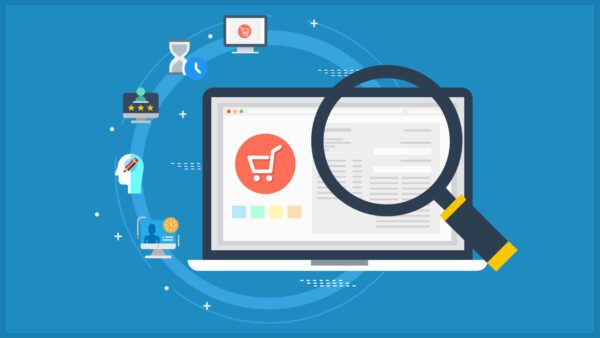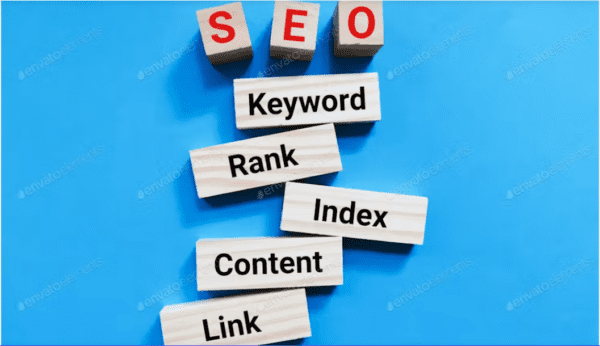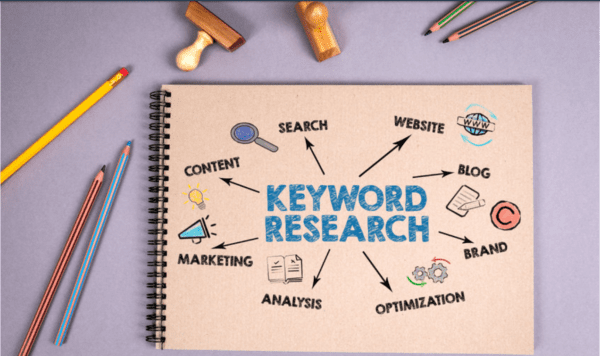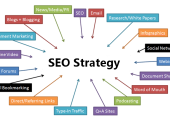If you’re running an online store, you’re likely aware of the importance of search engine optimization (SEO) for your e-commerce website. E-commerce SEO optimizes your online store to rank higher in search engine results pages (SERPs) for relevant keywords. The higher your website ranks, the more likely potential customers will find your store and make a purchase.
SEO is crucial for any website but essential for e-commerce sites. According to a survey by Wolfgang Digital, organic traffic from search engines you have accounted for 32% of e-commerce website revenue in 2020. Optimizing your online store for search engines like Google, Bing, and Yahoo is essential. By doing so, you can increase traffic to your site, improve your visibility, and ultimately boost your sales.

Understanding E-Commerce SEO
If you run an e-commerce website, you must understand SEO basics to ensure your business is visible to potential customers. SEO is optimizing your website to rank higher in search engine results pages (SERPs) for relevant keywords. This helps you attract more organic traffic to your website, which can lead to more sales.
The Importance of SEO for E-commerce
SEO is essential for e-commerce websites because it helps you reach potential customers who are actively searching for products or services you offer. When your website ranks higher in search engine results pages, it increases your visibility and helps you attract more traffic, leading to more sales and revenue for your business.
Key SEO Concepts and Terminology
To understand SEO for e-commerce, you must know some key concepts and terminology. Here are a few terms you should know:
- Organic traffic refers to traffic that comes to your website through unpaid search results.
- Visibility refers to how easily your website can be found on search engine results pages.
- Search volume refers to the number of times a particular keyword is searched for on search engines.
- Rankings: This refers to where your website appears in search engine results pages for specific keywords.
- Search intent refers to the reason behind a user’s search query. There are three main types of search intent: informational, commercial, and navigational.
- Informational: This type of search intent is when a user seeks information on a particular topic.
- Commercial: This type of search intent is when a user wants to purchase a product or service.
- Nautical: This type of search intent is when a user tries to find a specific website or page.
By understanding these key concepts and terminology, you can better optimize your e-commerce website for SEO and attract more potential customers to your business.

Keyword Research and Optimization
If you want your e-commerce website to rank high on search results pages, you need to conduct keyword research and optimize it accordingly. This section will discuss identifying target keywords, using keyword research tools, and optimizing for long-tail keywords.
Identifying Target Keywords
You need to understand your business and target audience to identify target keywords. Consider what your customers are looking for and what keywords they might use to find your products. Use tools like Google Keyword Planner to research relevant keywords and phrases with high search volume and low keyword difficulty.
You can also use tools like SEMrush and Ahrefs to analyze your competitors’ websites and identify the keywords for which they rank. This will help you find relevant keywords that you may have missed.
Tools for Keyword Research
Many tools are available for keyword research, each with features and benefits. Some popular tools include:
- Google Keyword Planner
- SEMrush
- Ahrefs
- Amazon Suggest
- Ubersuggest
These tools can help you find relevant keywords, analyze search volume and difficulty, and identify long-tail keywords.

Optimizing for Long-Tail Keywords
Long-tail keywords are phrases that are more specific and targeted than general keywords. They typically have lower search volume but higher conversion rates. You must create relevant and valuable content for your target audience to optimize your website for long-tail keywords.
When optimizing for long-tail keywords, include them in your page titles, meta descriptions, and content. Use variations of the long-tail keyword throughout your content to make it more natural and avoid keyword stuffing.
Conducting keyword research and optimizing your e-commerce website for relevant keywords can improve its visibility and increase traffic and conversions.
On-page SEO for E-Commerce
When it comes to e-commerce SEO, on-page optimization is crucial for the success of your online store. On-page SEO refers to optimizing individual web pages on your website to rank higher in search engine results pages (SERPs) and earn more relevant traffic. Here are some key areas to focus on for on-page SEO for e-commerce websites:
Optimizing Product Pages
Product pages are the backbone of your e-commerce website. They are where customers land when they search for a specific product. To optimize your product pages for search engines, you need to:
- Use descriptive and unique product titles that include relevant keywords.
- Write compelling and unique product descriptions that highlight the features and benefits of the product.
- Use high-quality images that are optimized for web use.
- Include user-generated reviews and ratings to build trust and credibility.
- Add related products and cross-sell opportunities to increase the average order value.
Category Page SEO
Category pages are where you group similar products. They help customers find what they are looking for quickly and easily. To optimize your category pages for search engines, you need to:
- Use descriptive and unique category titles that include relevant keywords.
- Write a brief category description that summarizes what the category is about.
- Include high-quality images that represent the products in the category.
- Use internal links to connect related category pages and product pages.

Meta Data and URL Structure
Metadata and URL structure are important for on-page SEO. They help search engines understand what your website is about and what content is on each page. To optimize your metadata and URL structure, you need to:
- Use unique and descriptive title tags that include relevant keywords.
- Write compelling meta descriptions that encourage users to click through to your website.
- Use clean and descriptive URLs that include relevant keywords.
- Use header tags (H1, H2, H3) to structure your content and make it easier to read.
In conclusion, on-page SEO is critical for the success of your e-commerce website. By optimizing your product pages, category pages, metadata, and URL structure, you can increase your visibility in search engines and attract more relevant traffic to your website.
Technical SEO and Site Architecture
Regarding e-commerce SEO, technical SEO and site architecture are crucial components that can make or break your online store. This section will explore the importance of site structure and navigation, mobile optimization and site speed, and secure websites and SSL certificates.
Site Structure and Navigation
A clear and well-organized site structure is essential for users and search engines. It makes it easier for visitors to find what they are looking for and helps search engines crawl and index your website more efficiently. To achieve this, you should create a logical hierarchy of categories, subcategories, and product pages that are easy to navigate.
Internal linking is one way to ensure that your site structure is optimized for search engines. By linking to relevant pages within your site, you can help search engines understand the relationships between different pages and improve your website’s overall authority. Creating a sitemap and submitting it to Google Search Console can help search engines discover and index your pages more quickly.
Mobile Optimization and Site Speed
In today’s mobile-first world, having a mobile-friendly website is no longer an option but a necessity. With more users accessing the internet from their mobile devices, ensuring your website is optimized for mobile devices is essential. This includes using responsive design, optimizing images, and reducing page load times.
Site speed is also critical in user experience and search engine rankings. Slow-loading pages can lead to high bounce rates and lower conversions. To improve your site speed, you can compress images, minify CSS and JavaScript, and use a content delivery network (CDN) to reduce latency.

Secure Websites and SSL Certificates
With cyber threats on the rise, website security is more important than ever. HTTPS and SSL certificates can help protect your website from hackers and ensure sensitive information is transmitted securely. In addition to providing a layer of security, HTTPS is also a ranking factor for Google, which means that having a secure website can help improve your search engine rankings.
To ensure your website’s security, install an SSL certificate and redirect all HTTP traffic to HTTPS. You can also use canonical tags to avoid duplicate content issues and ensure that search engines index your pages’ correct versions.
In conclusion, technical SEO and site architecture are critical components of e-commerce SEO. By optimizing your site structure and navigation, mobile optimization and site speed, and website security, you can improve your search engine rankings and user experience and ultimately drive more traffic and sales to your online store.
Link Building and Content Marketing
In e-commerce, SEO, link building and content marketing are two essential strategies for improving rankings and driving traffic to your site. In this section, we’ll explore some of the most effective ways to acquire backlinks and create high-quality content that will help you build trust, increase brand awareness, and improve your overall SEO strategy.
Strategies for Acquiring Backlinks
Backlinks are a critical component of any effective SEO strategy. They help search engines understand the relevance and authority of your site and can significantly improve your rankings over time. Some of the most effective strategies for acquiring backlinks include:
- Guest blogging: Writing high-quality content for other blogs in your niche can be a great way to build relationships with other bloggers and acquire backlinks to your site.
- Broken link building: Finding broken links on other sites and offering to replace them with links to your content can be a highly effective way to acquire backlinks and improve rankings.
- Infographics: Creating high-quality infographics that other sites will want to share can be a great way to acquire backlinks and improve your overall SEO strategy.

Creating High-Quality Content
Creating high-quality content is another critical component of any effective e-commerce SEO strategy. Not only does it help you acquire backlinks and improve your rankings, but it also helps build trust with your audience and increase brand awareness. Some of the most effective strategies for creating high-quality content include:
- Product reviews: Writing detailed, informative product reviews can be a great way to build trust with your audience and improve your rankings.
- How-to guides: Creating how-to guides that help your audience solve common problems or achieve specific goals can be a highly effective way to build trust and increase brand awareness.
- Video content: Creating high-quality video content that showcases your products or provides valuable information to your audience can significantly improve your rankings and drive traffic to your site.

Leveraging Social Proof and Reviews
Finally, leveraging social proof and reviews can be a highly effective way to build trust with your audience and improve your overall e-commerce SEO strategy. Some of the most effective ways to leverage social proof and reviews include:
- Customer testimonials: Including customer testimonials on your site can be a great way to build trust with your audience and improve your rankings.
- User-generated content: Encouraging your customers to create and share content related to your products can significantly increase brand awareness and improve your overall SEO strategy.
- Social media: Leveraging social media to build relationships with your audience and promote your products can be a highly effective way to improve your rankings and drive traffic to your site.
By incorporating these strategies into your e-commerce SEO strategy, you can improve your rankings, drive traffic to your site, and build trust with your audience over time.






